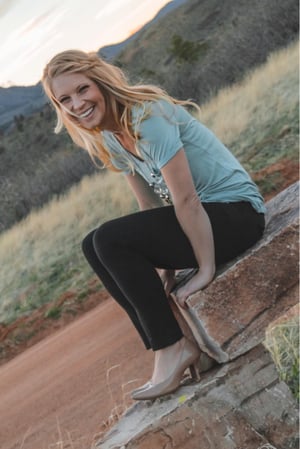Dear Medical Student: Letter to a Third Year - Medical School Clerkship Advice

What med school clerkships are like
It can be nerve-wracking on the wards, especially when you’re just starting with third year medical school clinical rotations. But, despite the practical inexperience, at this early stage, you already have a valuable asset to offer both patients and the teams you work with. Third year resident at Duke University in Anesthesiology Reade Tillman has been there and offers her med school clerkship advice
and encouragement to all MS3 students.
(An original version of this letter was published in the University of Colorado's collection Letters to a Third Year).
Dear MS3,
Nothing you do is billable.
You will meet the patient and ramble through your interview, inevitably missing some important information. You will do an exam semi-properly and get an adequate idea of what’s going on with the patient—not perfect, but adequate. Your problem list will include some lab aberrancies that really don’t matter and you might miss some warning signs that actually do. You’ll suggest a disposition without much context for understanding what the patient’s course will be. If you’re a gunner, you’ll even add some evidence-based medicine tidbits from the latest New England Journal of Medicine article, getting a nod of approval from your attending.
However, the stakes attached to your work will continue to be low. Best case scenario, the patient gets good care that takes a little longer than usual and you get a positive evaluation. If you do poorly, they’ll still get good care, though your evaluation might suffer. Chances are, you’ll get into residency anyway. The medical education system is designed to protect patients from, well, you.
There is one unique way, however, in which you can benefit the patient and care teams: nothing you do is billable. You aren’t thinking about how to code wisely or how to get enough reimbursement for the work you’re doing, and your paycheck won’t go up if you do more procedures. Insurance status is irrelevant for your learning. Time spent counseling, listening, explaining, or understanding isn’t less valuable. In fact, time might be the most valuable thing you have to offer. In two, ten or twenty years, you won’t have the luxury of listening to your patient talk until they run out of words; there will be too many other tasks, responsibilities, and priorities vying for your attention. For this finite period, you have the golden gift of time.
So, leverage it. Take an extra twenty minutes to round on that patient who has no visitors. Call that kid’s mom who missed rounds because she had to work. Stop by the older veteran’s room and listen to his stories one more time. Ask some extra questions about what your patient does for fun. Learn a few words in that foreign language so you can greet them in their native tongue. Stop by after rounds to see if the patient’s family had any questions that weren’t answered and explain the treatment plan for the fifth time—maybe it’s the fifth time that sticks. Familiarize yourself with community resources that can help support your patients’ health in a myriad of ways, for those with disabilities, for overwhelmed new parents, for those struggling with a new terminal diagnosis, for those lacking transportation, for those battling addiction. Suddenly, leveraged time could make a difference and improve outcomes; you become an asset, instead of a burden, to the care team. You are offering patients something that no one else can, not even future you.
Nothing you do is billable. So make the most of it.
Love,
Reade Tillman
Get equipped before you scrub in! Organize a 30min online Clerkship Bootcamp session here.

Reade Tillman is a third year resident at Duke University in Anesthesiology, planning on completing fellowships in Critical Care and Regional Anesthesia. When she’s not working, she enjoys international travel, crossword puzzles, being the “fun aunt” and having knee surgeries.

